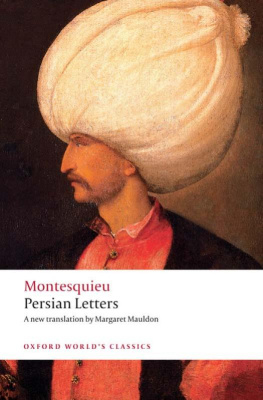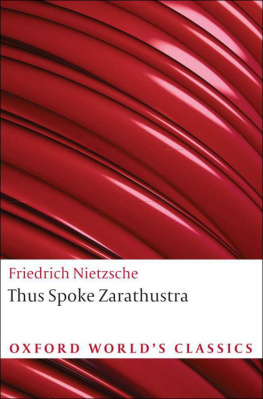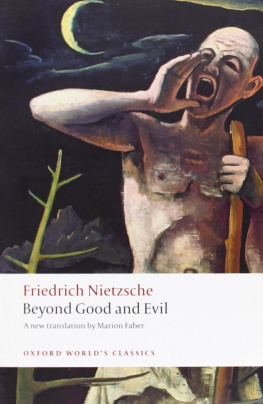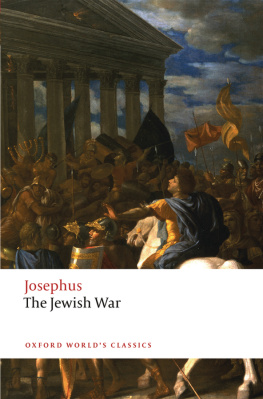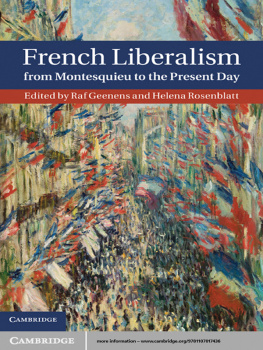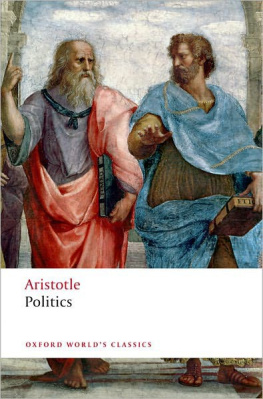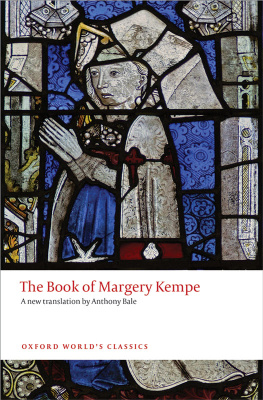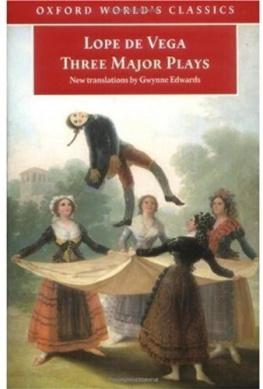Montesquieu - Persian Letters (Oxford Worlds Classics)
Here you can read online Montesquieu - Persian Letters (Oxford Worlds Classics) full text of the book (entire story) in english for free. Download pdf and epub, get meaning, cover and reviews about this ebook. year: 2009, genre: Religion. Description of the work, (preface) as well as reviews are available. Best literature library LitArk.com created for fans of good reading and offers a wide selection of genres:
Romance novel
Science fiction
Adventure
Detective
Science
History
Home and family
Prose
Art
Politics
Computer
Non-fiction
Religion
Business
Children
Humor
Choose a favorite category and find really read worthwhile books. Enjoy immersion in the world of imagination, feel the emotions of the characters or learn something new for yourself, make an fascinating discovery.
- Book:Persian Letters (Oxford Worlds Classics)
- Author:
- Genre:
- Year:2009
- Rating:5 / 5
- Favourites:Add to favourites
- Your mark:
- 100
- 1
- 2
- 3
- 4
- 5
Persian Letters (Oxford Worlds Classics): summary, description and annotation
We offer to read an annotation, description, summary or preface (depends on what the author of the book "Persian Letters (Oxford Worlds Classics)" wrote himself). If you haven't found the necessary information about the book — write in the comments, we will try to find it.
Persian Letters (Oxford Worlds Classics) — read online for free the complete book (whole text) full work
Below is the text of the book, divided by pages. System saving the place of the last page read, allows you to conveniently read the book "Persian Letters (Oxford Worlds Classics)" online for free, without having to search again every time where you left off. Put a bookmark, and you can go to the page where you finished reading at any time.
Font size:
Interval:
Bookmark:

oxford worlds classics
PERSIAN LETTERS
Montesquieu was born Charles-Louis de Secondat in 1689 at the chteau of La Brde, south of Bordeaux. He was educated by the Oratoriens at the Collge de Juilly in Meaux and completed a law degree at the University of Bordeaux in 1708. After a few years in Paris he returned to Bordeaux in order to manage the family estates following the death of his father. He married Jeanne Lartigue, a practising Calvinist, with whom he had three children. In 1716 he joined the Academy of Bordeaux and was its director for the year in 1718. On the death of his uncle he inherited the title of baron de Montesquieu and the post of prsi-dent mortier at the Parlement of Bordeaux where he had begun his career in law. From an early age he manifested a ceaseless intellectual curiosity and devotion to extensive scholarship. He pursued through systematic investigation the numerous factors that shape societies and an understanding of them. In 1721 he published the Persian Letters ( Lettres persanes) anonymously in Holland; his authorship, which became an open secret, gained him entry to the literary salons of Paris, where he lived from 1721
to 1725. Elected to the Acadmie Franaise in 1728, he sold his judicial office and travelled around Europe for three years. On his return he continued his scholarly research. His work on the ancient Romans addressed fundamental issues in the philosophy of history and prompted thinking about forms of government that would inform his later work. In 1748 his major work, The Spirit of the Laws ( De lesprit des lois), was published in Geneva.
Despite progressive eye-trouble, he published a Defence of the Spirit of theLaws in which he repudiated the allegation that he was a deist, and began work on An Essay on Taste for Diderots Encyclopedia. In 1754 he published an extensively revised version of the Persian Letters, acknowledging authorship for the first time. He died in Paris in 1755.
Margaret Mauldon has worked as a translator since 1987. For Oxford Worlds Classics she has translated Zolas LAssommoir, Stendhals TheCharterhouse of Parma, Maupassants Bel-Ami, Constants Adolphe, Huysmanss Against Nature (winner of the Scott Moncrieff prize for translation, 1999), Flauberts Madame Bovary, and Diderots Rameaus Nephewand First Satire.
Andrew Kahn is Fellow and Tutor in Russian at St Edmund Hall, Oxford, and University Lecturer in Russian at the University of Oxford.
He works on the literature and history of ideas of the European and Russian Enlightenments. He is the editor of the Cambridge Companion toPushkin (2007), and of Pushkins The Queen of Spades and Other Stories for Oxford Worlds Classics. His most recent book is Pushkins LyricIntelligence (2008).
oxford worlds classics
For over 100 years Oxford Worlds Classics have broughtreaders closer to the worlds great literature. Now with over 700
titles from the 4,000-year-old myths of Mesopotamia to thetwentieth centurys greatest novels the series makes availablelesser-known as well as celebrated writing.
The pocket-sized hardbacks of the early years containedintroductions by Virginia Woolf, T. S. Eliot, Graham Greene,and other literary figures which enriched the experience of reading.
Today the series is recognized for its fine scholarship andreliability in texts that span world literature, drama and poetry,religion, philosophy and politics. Each edition includes perceptivecommentary and essential background information to meet thechanging needs of readers.
OXFORD WORLDS CLASSICS
MONTESQUIEU
Persian Letters
Translated by
MARGARET MAULDON
With an Introduction and Notes by
ANDREW KAHN
Great Clarendon Street, Oxford ox2 6dp
Oxford University Press is a department of the University of Oxford.
It furthers the Universitys objective of excellence in research, scholarship, and education by publishing worldwide in
Oxford New York
Auckland Cape Town Dar es Salaam Hong Kong Karachi Kuala Lumpur Madrid Melbourne Mexico City Nairobi New Delhi Shanghai Taipei Toronto
With offices in
Argentina Austria Brazil Chile Czech Republic France Greece Guatemala Hungary Italy Japan Poland Portugal Singapore South Korea Switzerland Thailand Turkey Ukraine Vietnam Oxford is a registered trade mark of Oxford University Press in the UK and in certain other countries
Published in the United States
by Oxford University Press Inc., New York
Translation Margaret Mauldon 2008
Editorial material and Appendix Andrew Kahn 2008
The moral rights of the authors have been asserted Database right Oxford University Press (maker) First published as an Oxford Worlds Classics paperback 2008
All rights reserved. No part of this publication may be reproduced, stored in a retrieval system, or transmitted, in any form or by any means, without the prior permission in writing of Oxford University Press, or as expressly permitted by law, or under terms agreed with the appropriate reprographics rights organization. Enquiries concerning reproduction outside the scope of the above should be sent to the Rights Department, Oxford University Press, at the address above You must not circulate this book in any other binding or cover and you must impose this same condition on any acquirer British Library Cataloguing in Publication Data Data available
Library of Congress Cataloging-in-Publication Data Montesquieu, Charles de Secondat, baron de, 16891755.
[Lettres persanes. English]
Persian letters / Montesquieu; translated by Margaret Mauldon; with an introduction and notes by Andrew Kahn.
p. cm. (Oxford worlds classics)
Includes bibliographical references.
ISBN 978-0-19-280635-2
I. Mauldon, Margaret. II. Kahn, Andrew. III. Title.
PQ2011.L5E57 2008
843.5dc22
2007039894
Typeset by Cepha Imaging Pvt Ltd, Bangalore, India Printed in Great Britain by
Clays Ltd, St. Ives plc.
ISBN 978-0-19-280635-2
1 3 5 7 9 10 8 6 4 2
CONTENTS
Introduction
vii
Note on the Text
xxxi
Select Bibliography
xxxiv
Note on the Chronology of the Persian Letters xxxviii
A Chronology of Montesquieu
xxxix
List of Characters
xliii
PERSIAN LETTERS
Preface
Letters
Supplementary Letters
Some Reflections on the Persian Letters
Appendix: Extracts from Montesquieus Sources 229
Explanatory Notes
Concordance of Letter Numbers
This page intentionally left blank
INTRODUCTION
The Persian Letters ( Lettres persanes) is perhaps the first great popular work of the European Enlightenment. Conceived around 1717, it was published anonymously in 1721 and enjoyed immediate notoriety. The playwright Marivaux was critical of its false brilliance about serious subjects, while the historian and journalist Denis-Franois Camusat applauded its brilliance but called the contents dangerous. A cleric, stung by its critical attitude to religion, told Montesquieu that his book would sell like hot cakes. The prediction was correct, and Montesquieu later noted that booksellers, eager to cash in, implored members of the public to write them some Persian Letters. The original two slim volumes clearly caught the mood of the moment.
Montesquieu now stands as one of the great political thinkers of the modern world. His views on the nature of states and their constitutions had a tangible impact on the world around him. In Russia, Catherine the Great drew on his writing in her legislative reforms of the 1760s, and in America the Founding Fathers looked to his great
Next pageFont size:
Interval:
Bookmark:
Similar books «Persian Letters (Oxford Worlds Classics)»
Look at similar books to Persian Letters (Oxford Worlds Classics). We have selected literature similar in name and meaning in the hope of providing readers with more options to find new, interesting, not yet read works.
Discussion, reviews of the book Persian Letters (Oxford Worlds Classics) and just readers' own opinions. Leave your comments, write what you think about the work, its meaning or the main characters. Specify what exactly you liked and what you didn't like, and why you think so.

